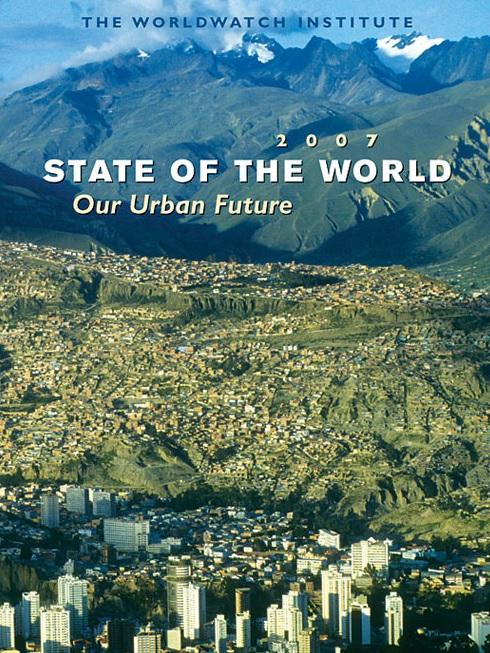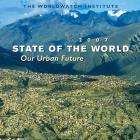Worldwatch Institute, ed. State of the World 2007: Our Urban Future. Washington: Worldwatch Institute, 2007.
State of the World 2007 includes in-depth case studies—CityScapes—of the following cities:
- Timbuktu, Mali: Greening the Hinterlands
- Loja, Ecuador: Ecological and Healthy City
- Lagos, Nigeria: Collapsing Infrastructure
- Freetown, Sierra Leone: Urban Farms After a War
- Los Angeles, USA: End of Sprawl
- Melbourne, Australia: Reducing a City’s Carbon Emissions
- Rizhao, China: Solar-Powered City
- Malmö, Sweden: Building a Green Future
- Jakarta, Indonesia: River Management
- Mumbai, India: Policing by the People
- Nairobi, Kenya: Life in Kibera
- Petra, Jordan: Managing Tourism
- Brno, Czech Republic: Brownfield Redevelopment
Humans are an urban species: today, over half of the Earth’s population live in urban areas. Unplanned and chaotic urbanization is taking a huge toll on human health and the quality of the environment, contributing to social, ecological, and economic instability in many countries. If global development priorities are not reassessed to account for massive urban poverty, well over half of the 1.1 billion people projected to join the world’s population between 2007 and 2030 may live in under-serviced slums. State of the World 2007: Our Urban Future examines changes in the ways cities are managed, built, and lived in that could tip the balance towards a healthier and more peaceful urban future.
While no single set of “best practices” would enable all cities to successfully address the challenges of poverty and environmental degradation, State of the World 2007 focuses on areas where urban leadership can have huge benefits for the planet and human development. These include providing water and sanitation services to the urban poor, bolstering urban farming, and improving public transportation. Additionally, the report recommends devoting more resources to information gathering on urban issues so that city, national, and international entities can better assess development priorities. (Text adapted from Worldwatch Institute’s website)



